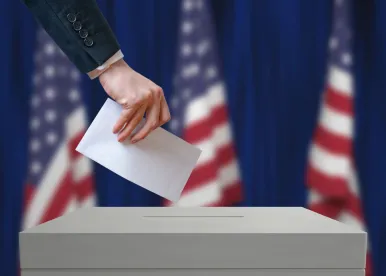A critical part of criminal justice reform is making it easier for those with criminal records to reenter society. This means greater job training, more employment opportunities, affordable housing, and stronger laws prohibiting discrimination and facilitating the expungement of old convictions. Successful reentry into a free society, however, requires more than just the basic needs of life. It also requires the restoration of basic rights, and there is no more basic right in a democracy than the right to vote.
Between 2016 and 2020, thirteen states expanded voting rights for individuals with felony convictions. The Marshall Project examined the voting rolls in four states that recently reformed their voting laws — Nevada, Kentucky, Iowa and New Jersey — and found that “only a fraction of the thousands of formerly incarcerated people whose voting rights were restored in time for the 2020 election made it back to the voter rolls.” Indeed, less than one in four eligible voters who had been formerly incarcerated were registered to vote as compared to almost three in four eligible voters among the general population. Of note, in New Jersey, they found that only 83 out of 2,000 people released from prison in 2019 had registered to vote in time for the 2020 election. Their research found that many people in these states were simply unaware their rights had been restored and that turnout was generally greater in states where active steps had been taken to inform formerly incarcerated people of their rights.
Without a formal campaign to educate the public, low turnout is understandable especially given that voting by the formerly incarcerated traditionally has been — and continues to be in some states — a criminal act. Also, the wide disparity in voting restrictions from state-to-state (even among states that have reformed their laws) make it even more confusing for people. For example, in Kentucky and Iowa, certain felony convictions are not covered nor are people on probation or parole. Whether (and to what extent) one can exercise a fundamental constitutional right should not depend on one’s geography, but to the extent it does, people need to know.
The Marshall Project clearly demonstrates the need for greater outreach to educate eligible voters and for national voting standards. Moreover, as I noted in a prior post, no matter how deeply rooted this practice may be, depriving individuals with a felony conviction of their fundamental right to vote — depending entirely on where they live and despite the disproportionate impact on racial minorities and the lack of any compelling justification — should no longer have a place in the American system of justice.



 />i
/>i

